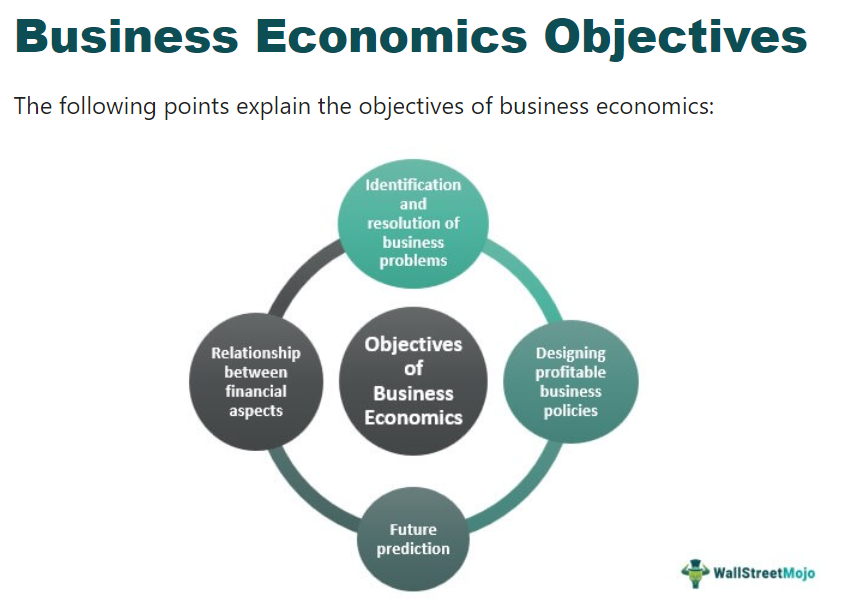Business and Economics New Opportunities and Risks in Contemporary Times
Business and Economics New Opportunities and Risks in Contemporary Times
Blog Article
Service and Economics 101: Vital Knowledge for Aiming Leaders
In today's quickly evolving service landscape, striving leaders need to cultivate a thorough understanding of fundamental tactical frameworks and economic principles. Mastering concepts such as supply and demand, market structures, and competition is not simply academic; these components are critical fit effective decision-making and cultivating advancement. Additionally, monetary literacy-- especially in money flow management-- acts as a cornerstone for sustainable growth. As we discover these crucial topics, it becomes apparent that the crossway of organization acumen and economic understanding is crucial for future leaders to not only flourish but survive in their ventures. What effects does this have for tactical leadership?
Comprehending Supply and Demand
Supply and need are essential principles that regularly underpin the auto mechanics of any kind of market economy. The connection between these two pressures determines the price of items and services along with their schedule in the marketplace. Supply refers to the quantity of a product that manufacturers are eager and able to cost numerous cost levels, while need mirrors the quantity that consumers are willing and able to acquire.
When demand boosts without a matching increase in supply, prices tend to increase, indicating producers to raise result. Alternatively, if supply overtakes demand, prices might fall, motivating producers to lower result. This dynamic interplay assists to accomplish market equilibrium, where the quantity supplied matches the amount demanded at a details rate point.

Exploring Market Frameworks
Market frameworks specify the competitive atmosphere in which companies run, dramatically influencing their prices strategies, result levels, and total earnings. Comprehending these structures is vital for aiming leaders, as they shape organization choices and market dynamics.
There are four primary kinds of market frameworks: perfect competition, monopolistic competition, oligopoly, and monopoly. Syndicates exist when a solitary company regulates the market, resulting in the highest possible level of prices power and possible market inadequacies.
Each market framework provides unique difficulties and chances for companies. Leaders should recognize these subtleties to properly place their organizations, establish affordable approaches, and react to market modifications. By understanding the implications of different market structures, aspiring leaders can make enlightened choices that drive their companies towards lasting success and development in an ever-evolving economic landscape.
Financial Concepts for Leaders
Efficient management in service demands a strong understanding of economic concepts, as they underpin tactical decision-making and resource allowance. Leaders should comprehend crucial principles such as money flow management, productivity analysis, and economic forecasting. These elements are critical in analyzing an organization's economic wellness and guiding its future instructions.
Capital management is specifically important; it ensures that the company keeps sufficient liquidity to satisfy its responsibilities while seeking growth chances. Analyzing profitability enables leaders to identify which items or solutions yield the highest possible returns, making it possible for educated investment choices. In addition, financial projecting aids anticipate future incomes and costs, facilitating more precise budgeting and source allocation.
Furthermore, recognizing financial statements-- such as equilibrium sheets, revenue statements, and cash flow declarations-- equips leaders with the insights required to make educated selections. This understanding fosters accountability and transparency, improving stakeholder depend on.
In today's vibrant company atmosphere, leaders need to be experienced at analyzing financial data to react promptly to market modifications. Ultimately, a strong understanding of economic concepts equips leaders to drive their organizations toward lasting success while successfully managing threats and resources.
The Function of Competition
Understanding the role of competitors is vital for any type of business intending to flourish in a saturated market. Competitors drives technology and effectiveness, compelling businesses to improve their solutions and products continually.
Moreover, competitors can result in far better prices techniques. As firms try market share, they are incentivized to supply competitive rates, benefiting consumers while difficult businesses to take care of expenses efficiently. This vibrant fosters a culture of regular improvement, pushing organizations to simplify operations and boost worth propositions.
Furthermore, competition can promote market development by encouraging new participants. New businesses commonly introduce fresh concepts and techniques, even more boosting the overall market landscape. However, business have to additionally be vigilant; too much competition can lead to market saturation, reducing earnings for all gamers involved.
Ultimately, understanding and navigating competition is crucial for leaders. By acknowledging its complex duty, aspiring leaders can make informed choices that place their companies for long-term success in an ever-evolving marketplace.
Strategic Decision-Making
In the world of business, tactical decision-making is fundamental to achieving lasting objectives and adapting to transforming conditions. This procedure includes examining different why not try this out options and choosing the most effective course of activity that straightens with the organization's vision and objectives. Reliable navigate to these guys calculated decision-making requires an extensive understanding of both interior and outside settings, consisting of market patterns, competitive characteristics, and business capabilities.
Leaders should collect relevant info, evaluate it seriously, and projection prospective end results. Additionally, analyzing risks linked with each different enables leaders to create and expect obstacles contingency plans.
Inevitably, effective strategic decision-making equips companies to browse complexities, take advantage of opportunities, and respond proactively to dangers. By growing a culture that values informed decision-making, companies place themselves to innovate and preserve an affordable side in an ever-evolving business landscape. Hopeful leaders need to sharpen these skills, as their capacity to make sound critical choices will dramatically affect their organizations' success and sustainability.

Verdict
In conclusion, a strong understanding of business and business economics basics is important for aspiring leaders. Expertise of supply and demand, market frameworks, and monetary principles fosters informed decision-making and effective source allotment. Recognizing the Click Here function of competition additional enhances tactical thinking, making it possible for leaders to browse intricate market characteristics. Eventually, this foundational understanding equips future leaders to innovate and straighten organizational approaches with developing market conditions, leading the way for continual success and profitability.
Recognizing these ideas is essential for aiming company leaders, as they develop the foundation for effective decision-making in rates, source allowance, and market technique. Comprehending supply and demand furnishes leaders to navigate the complexities of market variations and customer habits.
Monopolies exist when a single company manages the market, resulting in the highest level of rates power and potential market ineffectiveness.
By understanding the effects of different market frameworks, aspiring leaders can make informed decisions that drive their services toward sustainable success and development in an ever-evolving economic landscape.
Recognizing the duty of competitors further enhances calculated reasoning, making it possible for leaders to browse complex market characteristics.
Report this page